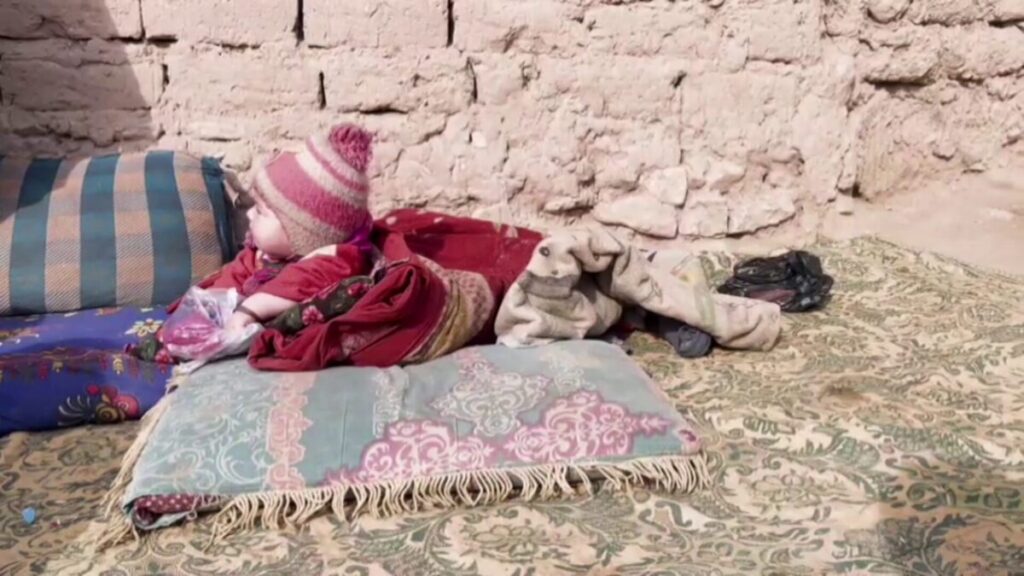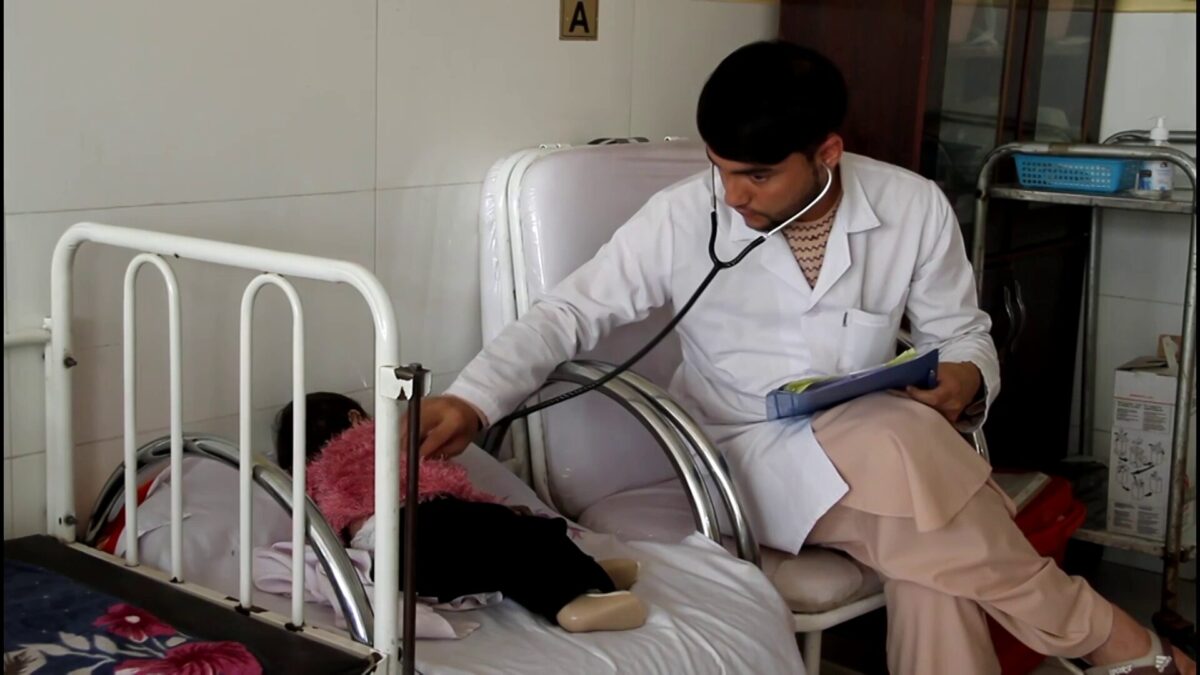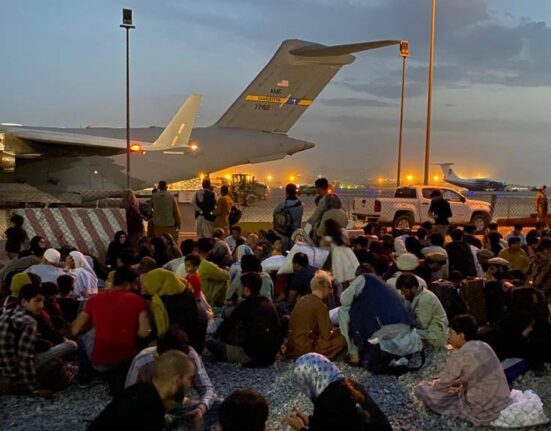Women in Uruzgan Province are increasingly forced to give birth without access to doctors or midwives due to a severe lack of healthcare services, local residents say. Many women report that their newborns suffer from illnesses, particularly infectious diseases, while poverty prevents them from seeking proper medical care or nutrition.
In interviews with Amu TV, women described a cycle of hardship that leaves them unable to provide adequate care for their children. Anar Gul, a mother in Uruzgan, said she gave birth without medical assistance and now watches her children struggle with repeated illnesses.
“Our children suffer from various illnesses: coughing, pneumonia, stomach aches, headaches, and more,” she said. “We have no money to buy medicine or treat them.”
Another mother, who gave birth three days ago to a son named Awal Khan, remains bedridden without medicine or treatment, according to her husband, Ghaus Mohammad.
“My wife gave birth here at home. I couldn’t afford to take her to a doctor or midwife,” Mr. Mohammad said. “I swear I don’t even have a single rupee to buy meat or sweets for my wife. For three days, my wife and child have been sick, and I can’t take them to a doctor or buy medicine.”

Uruzgan, one of Afghanistan’s most impoverished provinces, faces widespread poverty, traditional gender norms, and limited access to healthcare, exacerbating the situation for women and children. Local sources report that traditional beliefs and a lack of awareness about family planning contribute to high birth rates. Families often have between five and ten children, but most lack the resources to meet their basic needs or afford medical care.
The shortage of female doctors and midwives remains a critical challenge. Women, particularly in conservative rural areas, are often unable to receive care from male medical professionals due to cultural restrictions.
Experts warn that without immediate intervention, the health crisis in Uruzgan will worsen. Women and children are particularly vulnerable to preventable diseases, and the lack of healthcare infrastructure leaves families struggling to survive.





